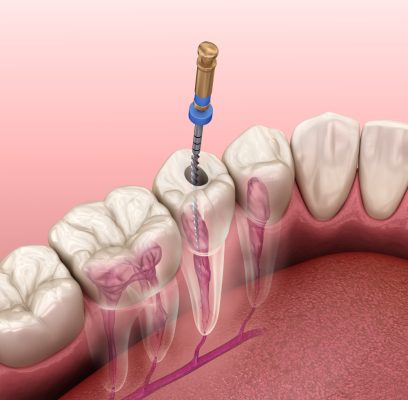Understanding the Costs of Root Canal Therapy
Root canal therapy is an essential dental treatment for saving a tooth with deep decay or infection. While many people may worry about the cost, understanding the factors that impact pricing can help you plan for treatment and make an informed decision.
At Glenwood Dental Associates in Smyrna, DE, we prioritize patient education and transparency, so you know exactly what to expect when it comes to the cost of your root canal. Call our dental office in Smyrna at (302) 653-5011 if you are experiencing tooth discomfort in the surrounding communities of Dover, Clayton, and Kenton.
Glenwood Dental Associates: Your Trusted Partner for Root Canal Therapy

We pride ourselves on offering clear communication about treatment plans and associated costs, so you never feel uncertain about what to expect. Our compassionate staff, including Carrie, Deb, and Jenna, works hard to ensure you are comfortable and confident in your dental care choices.
What Determines the Cost of Root Canal Therapy?
The average root canal cost without dental insurance can range from $600 to $1,600, depending on the tooth and the severity of the infection. Keep in mind that this price may vary by location and dental professional. The cost of a root canal can vary significantly based on several factors. Here’s a closer look at what influences pricing:
Location of the Tooth
The position of the tooth in your mouth can affect the price. Front teeth generally require simpler procedures and may cost less, while molars, which have more roots and complex structures, can be more expensive to treat.
Severity of the Infection
The extent of the infection or damage to the tooth plays a big role in determining costs. If the infection has spread or involves additional dental complications, treatment may be more involved and thus more expensive.
Dental Professional’s Experience
Experienced dentists or specialists who handle more complicated cases may charge more for their services. However, their expertise can make a significant difference in the success rate of the procedure.
Insurance Coverage
Your dental insurance plan may cover part or all of the cost of root canal therapy. It’s important to check with your provider to understand how much of the procedure is covered and what you may need to pay out of pocket.
Why Choose Root Canal Therapy?
Investing in dental care is a big decision, but the benefits of a root canal procedure can save you money in the long run. Root canal treatment can:
Save Your Natural Tooth: The primary advantage of a root canal is the ability to keep your natural tooth. Preserving your tooth helps maintain your bite and overall dental health, preventing potential shifts in your smile or the need for more invasive treatments like extractions or dental implants.
- Relieve Pain: An infected tooth can be painful, making everyday activities difficult. Root canal therapy removes the source of the pain and restores comfort to your mouth.
- Prevent Future Dental Issues: Addressing an infection early can prevent more severe dental problems, such as the spread of bacteria to other teeth or the development of abscesses.
- Long-Term Cost Savings: Although the upfront cost of a root canal might seem high, it can be more economical in the long run. By saving your natural tooth, you avoid future costs related to tooth extraction and dental implants.
Insurance and Payment Options for Root Canal Therapy
Understanding how insurance interacts with root canal costs can help you plan effectively. Most dental insurance policies cover part of the cost of root canal therapy, but the extent varies from plan to plan. It’s essential to contact your insurance provider to learn the specifics of your coverage.
Reviewing Your Insurance Plan
Some plans may cover the procedure with a co-pay, while others may have a cap on the amount covered. Be sure to verify details such as waiting periods and whether your provider requires pre-authorization for treatment.
Payment Plans and Financing
At Glenwood Dental Associates, we know that dental procedures can be financially taxing. That’s why we offer flexible payment plans and work with third-party financing companies, such as CareCredit. These programs allow you to manage the cost over several months with low or no interest rates. It’s a practical way to receive the treatment you need without the added stress of upfront costs.
Health Savings Accounts (HSAs) and Flexible Spending Accounts (FSAs)
If you have an HSA or FSA, you can use these pre-tax funds for dental treatments, including root canals. This option can save you money by reducing your taxable income, making dental care more affordable.
Finding Affordable Root Canal Options
Affordable options for root canal treatment are available through various avenues, including dental schools, public health clinics, and government assistance programs. Dental schools often offer reduced-cost treatments performed by students under the supervision of experienced faculty. This not only provides patients with quality care but also allows students to gain valuable hands-on experience.
Public health clinics typically serve lower-income individuals and families, providing crucial dental services at a fraction of the cost you would find in private practices. These clinics are designed to be accessible and may offer sliding scale fees based on your ability to pay.
Additionally, government assistance programs can help cover dental expenses for those who qualify. These programs may include Medicaid or other state-specific initiatives aimed at assisting individuals with low income or special needs in obtaining necessary dental treatments.
Exploring these options can lead to significant savings while ensuring you receive the dental care you need. Call our Smyrna dental team at (302) 653-5011 to learn more about our dental financing options at Glenwood Dental Associates.
Frequently Asked Questions
Many patients believe that root canal therapy is painful, but modern techniques and anesthesia have made the procedure much more comfortable. In fact, it’s often less painful than the toothache caused by an untreated infection.
Some root canals can be completed in one visit, especially if the infection is not severe. However, more complicated cases may require multiple appointments to ensure proper treatment and healing.
After the procedure, you might experience mild soreness or discomfort for a few days, but this can usually be managed with over-the-counter pain relief. Your dentist will provide aftercare instructions to promote healing.
Contact Us to Learn More about Dental Financing Options in Smyrna
If you’re in Smyrna or nearby areas like Dover, Clayton, and Kenton, and you’re considering root canal therapy, Glenwood Dental Associates is here to help. Contact us today at (302) 653-5011 to schedule your consultation. Don’t let dental pain hold you back—our team is ready to guide you through the process and provide professional tooth pulp treatment.
Choose Glenwood Dental Associates for compassionate, top-quality dental services. Schedule your appointment today!
 Save Your Natural Tooth
Save Your Natural Tooth